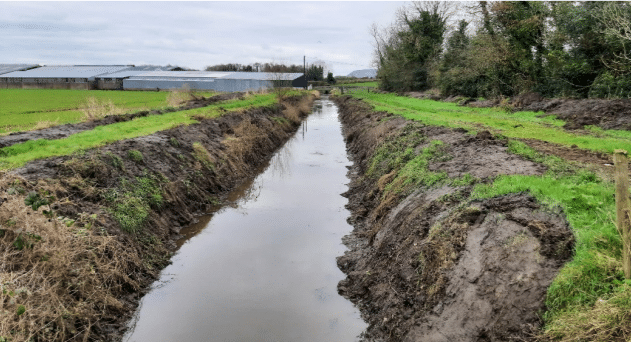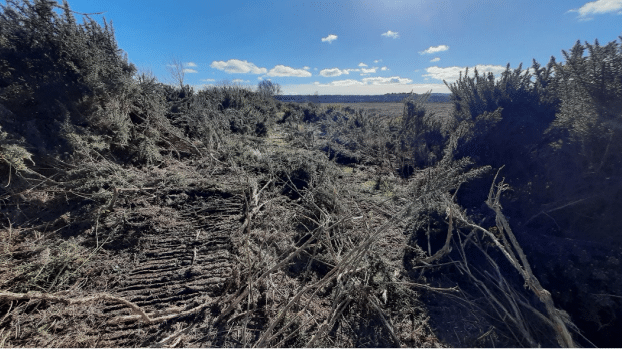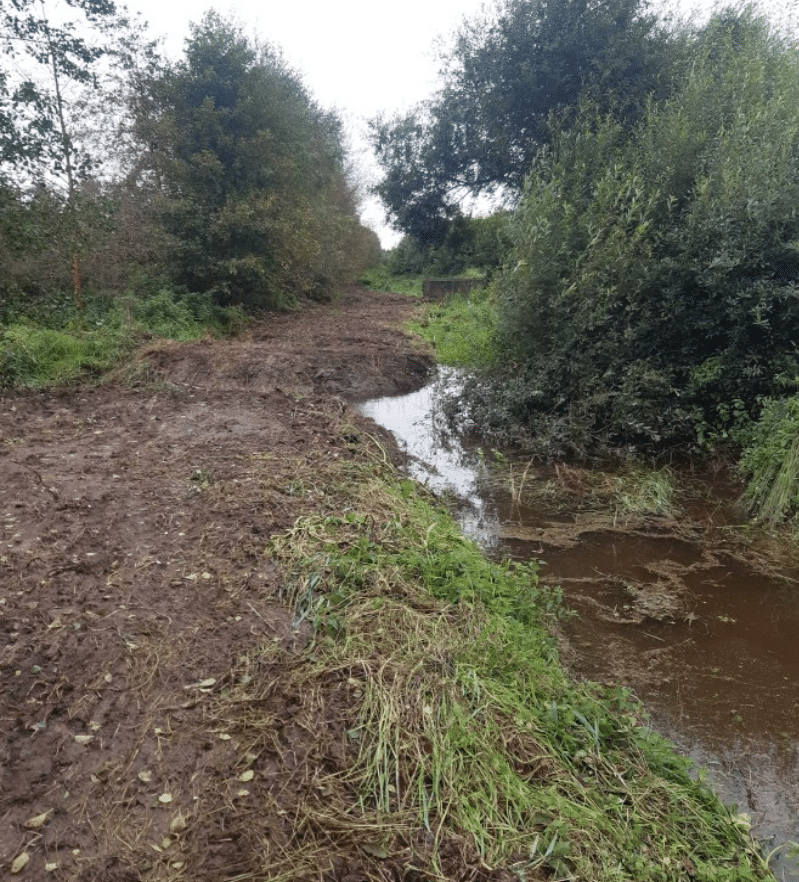By Conor O’Carroll.
Almost a third of Office of Public Works (OPW) quality audits of maintenance work on rivers and waterways last year failed to obtain a ‘good’ or ‘very good’ rating, according to documents released to Village Magazine.
While the majority of audit reports were scored favourably, a number of reports also received a ‘poor’ or ‘bad’ score, with habitats disturbed, trees improperly removed and gorse removed during bird nesting season.
Introduced in 1945 to maintain all rivers, embankments and urban flood-defences in “proper repair and effective condition”, the Arterial Drainage Act gives responsibility to the OPW for roughly 11,500km of channels across the country.
As part of this maintenance, weeds, vegetation and low-hanging trees or branches are cleared from the channel to ensure that the flow of water is not blocked. Guidance notes from the OPW for environmental drainage maintenance state that bank slopes should be protected and excessive maintenance to the channel should be restricted.

One of the failings identified in the OPW audits was the removal of all vegetation along the bank close to the Blanket Nook Wildlife Sanctuary in Donegal. The area is a popular bird-watching spot, with rare birds sometimes spotted as they migrate. The effect of the removal of the vegetation was exacerbated as it was carried out during bird nesting season, potentially causing substantial disruption.

Work carried out along the River Corrib in Galway included the removal of dense gorse with a machine bucket during the bird breeding season. The auditor found that this work was entirely unnecessary as no maintenance was required of the channel or banks.
Further failings identified by the audits include the removal of too much material from the channel bed along the River Clare, and the improper placement of removed sediment on the banks of the channel where it is at risk of slipping back down.

The use of heavy machinery along the River Maigue in Cork was also criticised, with the works effected after heavy rainfall, making the ground unstable and causing soil along the banks to slip
into the channel.
All these audits received a ‘bad’ or ‘poor’ score in their reports.
An investigation by Noteworthy in 2022 identified similar problems, with a quarter of audits failing to meet ‘good’ or ‘very good’ standard. Reports obtained as part of the investigation found “instances where required environmental assessments were done after the vegetation was cleared, long-lasting damage to the Clare River from arterial drainage activities and negative impacts of arterial drainage on fish populations in Cork”.
In 2018, the Irish Wildlife Trust (IWT) also accused the OPW of breaching national and European environmental legislation when it was found to have cleared the banks of the River Newport in Limerick.
The river is part of the Lower River Shannon Special Area of Conservation and an important habitat for Atlantic salmon. Despite this, a kilometre of the river bank was stripped completely bare of all vegetation by the OPW, with its own assessment of the works stating it intended to carry out minimal work, causing no damage to the river.
A quality audit found the removal of dense gorse from the Corrib during the birdbreeding season. was entirely unnecessary as no maintenance was required of the channel or banks
As a result of these failings on the part of the OPW, many environmental groups and campaigners have sought to reform the Arterial Drainage Act, claiming that it is no longer fit for purpose and is instead leading to the “destruction of whole river systems”.
A petition calling for reform of what the IWT call an “archaic piece of legislation not fit for the 21st century” was presented to Minister of State Patrick O’Donovan TD in July 2021, underwritten by over 5,000 signatories.
The Act has also come under scrutiny recently from the Citizens’ Assembly on Biodiversity Loss.
The Assembly asserted that the Act “is no longer fit for purpose and must be reviewed and updated in order to take proper account of the biodiversity and the climate crisis”.
Instead, the Assembly suggested, nature-based approaches should be used in “State and community programmes to tackle flood management”. These approaches, known as Natural Water Retention Measures, slow down the flow of water and reduce the risk of flooding using the natural processes of rivers and their floodplains and are considered far more environmentally friendly than the current approach pushed by the Arterial Drainage Act.
![]()